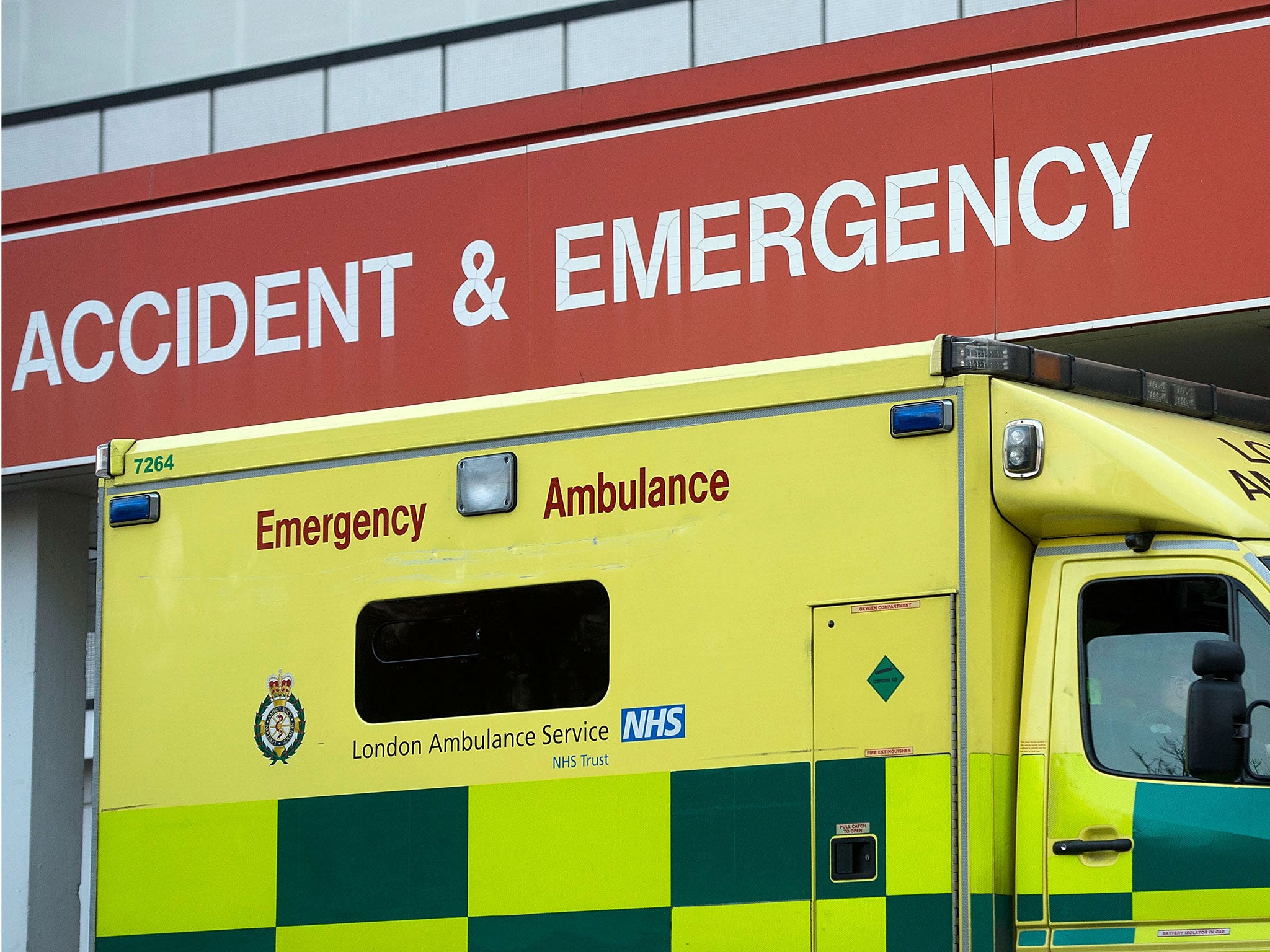NHS explainer: Why are we experiencing an A&E crisis now?

Your support helps us to tell the story
From reproductive rights to climate change to Big Tech, The Independent is on the ground when the story is developing. Whether it's investigating the financials of Elon Musk's pro-Trump PAC or producing our latest documentary, 'The A Word', which shines a light on the American women fighting for reproductive rights, we know how important it is to parse out the facts from the messaging.
At such a critical moment in US history, we need reporters on the ground. Your donation allows us to keep sending journalists to speak to both sides of the story.
The Independent is trusted by Americans across the entire political spectrum. And unlike many other quality news outlets, we choose not to lock Americans out of our reporting and analysis with paywalls. We believe quality journalism should be available to everyone, paid for by those who can afford it.
Your support makes all the difference.Ageing population
Underlying the pressures on the NHS is the simple fact that it must care for an ever-growing and increasingly aged population. The UK population has increased by 4 million in 10 years, to 64 million. Eleven million of us are now over the age of 65, a group which has been growing, and will continue to grow as a percentage of the population, as longevity increases. Elderly people are more likely to fall ill, and more likely to require both urgent and routine healthcare.
Winter illnesses
Every year, the workload of the NHS peaks in winter. Cases of flu, chest infections, winter vomiting and other bugs increase during the colder months. This winter, national monitoring has not yet picked up a major spike in any of these. As of last week, flu levels remained around the same as the last three winters, and cases of rhinovirus, which causes colds, were low. However, GPs have reported a high number of patients with chest infections, while the College of Emergency Medicine says it has anecdotal reports from across the country of rising levels of flu and norovirus.
Cuts to social care
The number of people in the UK who receive state-funded care in the home or in their community has fallen from 1.8 million in 2008-09 to 1.3 million in 2012-13, with further reductions of an estimated 5.8 per cent last year.
This follows government cuts to council budgets, which led to reductions of £3.5bn in their adult social care spending over the past four years.
This means many elderly people whose needs are significant but not extreme, are not receiving help with basic things like getting up and down stairs safely, having a bath, or cooking. The charities Age UK and Independent Age say that this is having an impact on the NHS. Without care, elderly people are more likely to have a fall or an accident, or not have an illness picked up early, and end up in A&E. Once they are in hospital they are likely to have to stay for a while. Because care provision outside hospitals has been cut, it is taking longer to find them long-term alternatives, even once they are better. Between 3 November and 14 December, there were 114,957 cases of hospital beds being unavailable because of these kinds of delays in transferring care of a vulnerable patient.
Long waits to see a GP
It is estimated that around 30 per cent of those who attend A&E could have been treated elsewhere – by a GP, pharmacist, or minor injury unit. However, GPs are facing their own crisis, for many of the same reasons as hospitals: a growing and ageing population, and more long-term ill.
Many GPs are retiring or leaving the NHS to work overseas, creating a staffing crisis, and last year recruitment into the profession was at its lowest levels in nearly a decade. Patients are therefore waiting longer to get a GP appointment – in the latest GP Patient Survey, for July 2014, more than 10 per cent of people said they struggled to get an appointment. Fed up of waiting, many go to A&E – something that happens more often over Christmas when some GP surgeries are closed.
NHS 111
The NHS’s telephone triage service is thought to be sending more people to A&E or calling out an ambulance more often than the old triage services. In October, the latest month for which figures are available, 17 per cent of 111 calls led to an ambulance call out or a recommendation to go to A&E.
Join our commenting forum
Join thought-provoking conversations, follow other Independent readers and see their replies
Comments